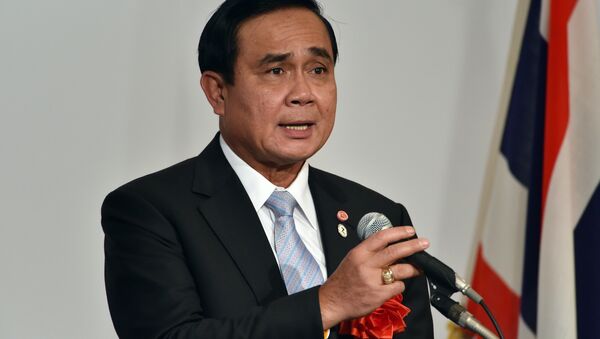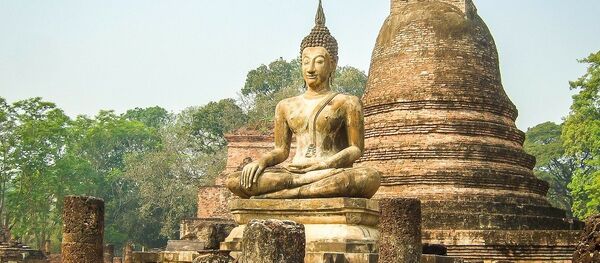Over 2.3 million Thai voters are expected to take part in the March 24 election, the South China Morning Post (SCMP) reported.
— Jiraporn Kuhakan (@KuhakanJiraporn) March 17, 2019
The nation's former prime minister, Yingluck Shinawatra, was ousted in a military coup in May 2014, three years after being elected Thailand's first female prime minister, the 12th military coup in the southeastern Asian country since 1932. Yingluck's opponents, including many in the middle classes and in Bangkok, claimed that she was a puppet for her brother Thaksin Shinawatra, who was himself ousted by a 2006 coup.
"I finally have a chance to cast my vote as I've waited for so long," 48-year-old voter Paka Kaengkhiew said waiting outside Bangkok's Phra Khanong district office on Sunday, the SCMP reported. Hundreds of others congregated outside schools, parking lots and temples to cast an early ballot.
"I don't think this election will take Thailand back to a liberal democracy, because the constitution allows the military to continue to hold power," Titipol Phakdeewanich, a political scientist at the University of Ubon Ratchathani in Thailand, told Al Jazeera.
"It is a referendum on democracy and whether this country wants to move forward with democracy or not," he added.
Prayut Chan-o-cha, the incumbent prime minister and the head of the National Council for Peace and Order (NCPO), a military junta that has been ruling the country since 2014, will run for the office as the Palang Pracharath Party candidate. The pro-Thaksin Puea Thai and Thai Raksa Chart parties are expected to be the main rivals to the pro-junta Palang Pracharath Party.
The NCPO took control over the country after the May 2014 coup, forcing out the government that was elected in 2011. Since that time, an interim parliament comprising lawmakers designated by the NCPO has been operating in the country along with an NCPO-controlled cabinet.
— May Wong (@MayWongCNA) March 17, 2019
Political activity of any kind has been banned until government started gradually lifting restrictions in 2017 in a bid to suppress growing opposition and criticism. In December 2018, however, the NCPO lifted restrictions on public gatherings and political activities so that political parties could carry out election campaigns, Sputnik previously reported.
According to analysts, the army-aligned, pro-military and conservative Palang Pracharath party is most likely to win the election. The 250-seat upper house of the Senate will automatically be appointed by armed forces, giving Prayut's party an advantage in the election.
Sudarat Keyuraphan of the challenging Pheu Thai party urged voters "not to be tricked" by the military regime, noting that Palang Pracharath's rule has failed to limit corruption, improve the standard of living or lift the country's economy.
However, although most Thais are not supportive of military rule, Prayut is well respected by civilians, who attribute the end of what many consider to have been a corrupt Thaksin dynasty to him.



